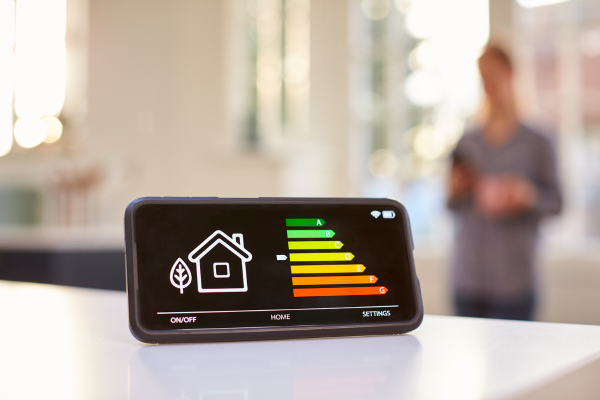The short answer is yes. That’s because when you look at all the bills a tenant has to pay, one of the largest, after their rent, is their utility bills. And while rents tend to rise in line with or below the rate of general inflation, utility bills have been going up exponentially.
And with a need to use less energy from a climate change perspective, making sure rental properties are as energy efficient as reasonably possible is a wise investment.
Will the next Government bring back the need for ‘C’ rated EPCs?
According to Kim Lidbury, our Group Director of Property Management, “there is a strong likelihood that the Minimum Energy Efficiency Standard (MEES) or something similar will reappear.”
So, although the current Government scrapped proposals to raise the minimum EPC rating for rented homes from ‘E’ to ‘C’ (which were proposed to have begun in 2025 with new and renewed tenancies), it’s likely that in the next 12-18 months landlords will once again be required to make energy efficiency upgrades.

Is it worth making improvements now or waiting for legislation?
Considering the EPC banding runs from A to G, the current requirement for rented properties to achieve an ‘E’ rating means they’re not particularly energy efficient.
In fact, according to gov.uk, moving from an E rating to the previously proposed C rating on an EPC, the tenant could be spending around 50% less on lighting, heating and hot water. Although the Government’s sample EPC is from 2012 and therefore costs have increased, it still showed a saving of £2,865 over three years. That’s almost £1,000 a year tenants could spend on themselves – or it could help fund annual rent increases.
In addition, because the Government wants to achieve their net zero targets – and all indications are a new Government would want to do the same – there is a further financial incentive for landlords who have buy to let mortgages.
Increasing numbers of lenders are now offering ‘green mortgages’ on properties that have an EPC rating of A or B. Most of these reward borrowers with better interest rates or cashback, and some will also offer discounted rates or cashback on any money you borrow to make energy efficiency upgrades.
So upgrading your rented property’s efficiency now could make good financial sense, rather than waiting for legislation to force you to do it at a time that may not be convenient or financially viable for you.

What other benefits are there to making changes now, or when you next upgrade the property?
The first is that although tenant demand has been really high over the last few years, it looks like it is starting to match supply a little better in 2024.
And, according to our nationwide survey, home hunters are now taking much more of an interest in a property’s energy efficiency:
- 70% of respondents would like their property to be more eco-friendly
- 66% revealed they would choose a property with eco-friendly features over one without them
- 56% said they would specifically seek out a property with energy efficient qualities
So, if you want to maximise the rent and secure the very best tenants, you need to ensure your property meets their wants and expectations.
In addition (although there isn’t a great deal of data around this yet), if you’re thinking about selling your rental properties in the future, we’d suggest that the more energy efficient they are, the more likely they’ll be to attract buyers and achieve a good market price.
Two more key reasons why it’s worth planning to make improvements sooner rather than later:
- The cheapest time to carry out energy efficiency upgrades is between tenancies or when you first buy a property and are making other improvements to bring it into line with lettings legislation.
- As the property market is likely to remain subdued this year, it will be easier to secure quality tradespeople that can upgrade the property’s insulation or install a new energy efficient boiler that will see you, your property and the tenant through the next 10 years. By that time, hopefully the way in which we will heat our homes moving forward, will be much more assured.
For more information on creating an energy efficient property, do contact your local branch.








